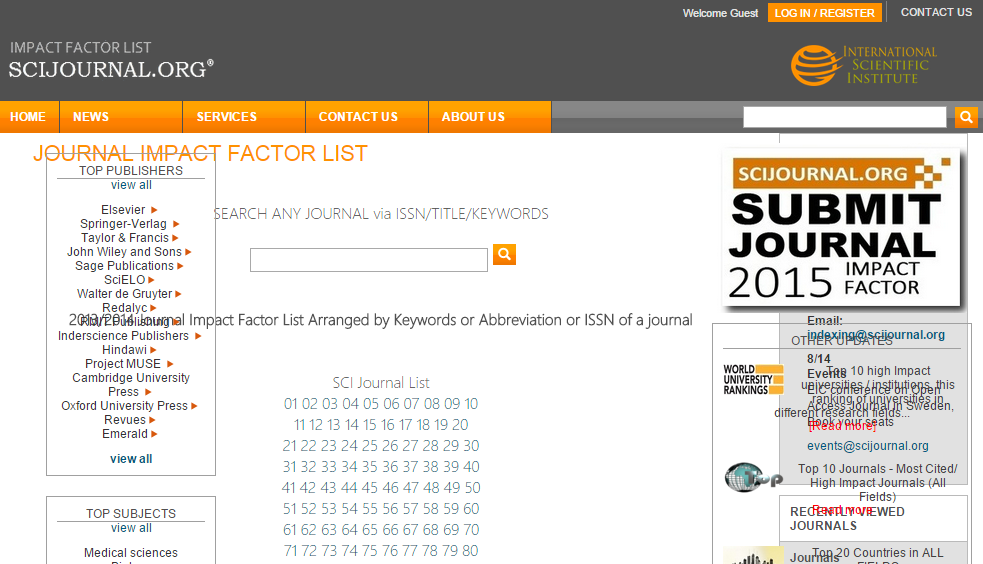Author: Rafael Repiso – Translation: Erika-Lucia Gonzalez-Carrion
The fraudulent systems of evaluation of journals are a secondary phenomenon, derived largely of the need of accreditation of the fraudulent journals and of the emptiness existing to evaluate journals of second order beyond of the databases of Thomson Reuters or Elsevier, and that therefore also need of external accreditations. If with the Predatory journals we had a group of magazines offering authors to publish in them in return of money and without quality control, with this new phenomenon, databases offer the journals index and calculation of metrics in change of a small pay, which in many cases is increasing over the years. But nobody should fall into the trick; these indicators do not serve for anything. They are little transparent indicators, in the best of cases based on Google Scholar Metrics and of course they are neither validated by the scientific community nor taken into account by any national assessment agency. That is, that they do not serve for a six-year term. Much attention to those who prepare to justify the merits of their works.
These metric products are created originally to give validity to the Predatory journals, and the same association creates them. This allowed Predatory journals to show in their covers signs of quality similar to the Impact Factor generated by unknown companies with a web portal that often had the appearance of being the soft brand of Web of Science. However, soon they realized that many journals that were not Predator, eager for “medals”, began to call its doors to ask them to be indexed in their products, so they expanded its fraudulent business in a short time.

Jeffrey Beall alerts us of list of fraudulent pages (36 in total) that generate metrics of impact to the journals, and that in many cases choose the strategy to impersonate the famous Impact Factor. The ultimate objective of this group of products is getting out dogs to journals wishing to undergo evaluation.
Finally I reproduce the advice of Jeffrey Beall: “Don’t send articles to journals that present indicators of impact of these databases”. These metrics are a good indication of that what is behind smells to be rotted.
